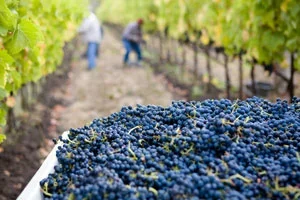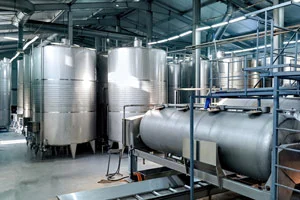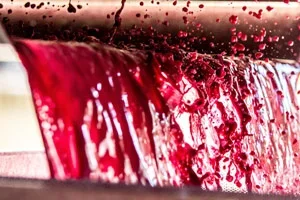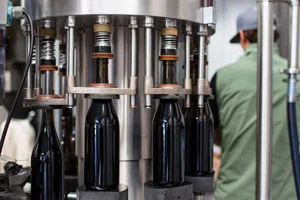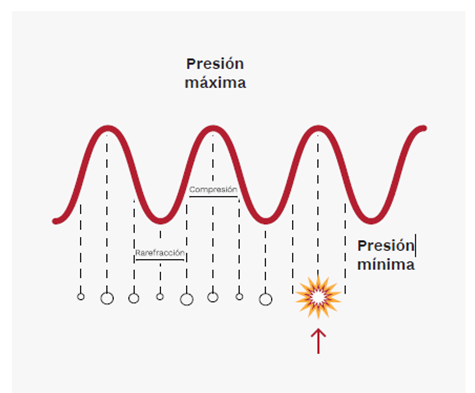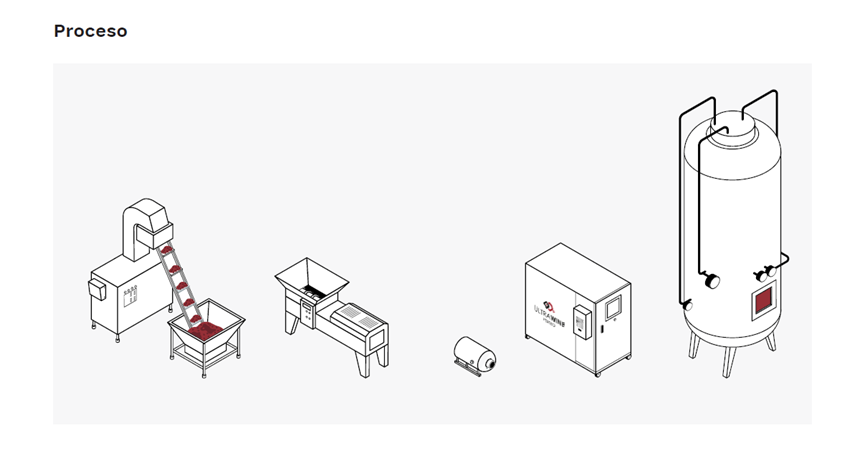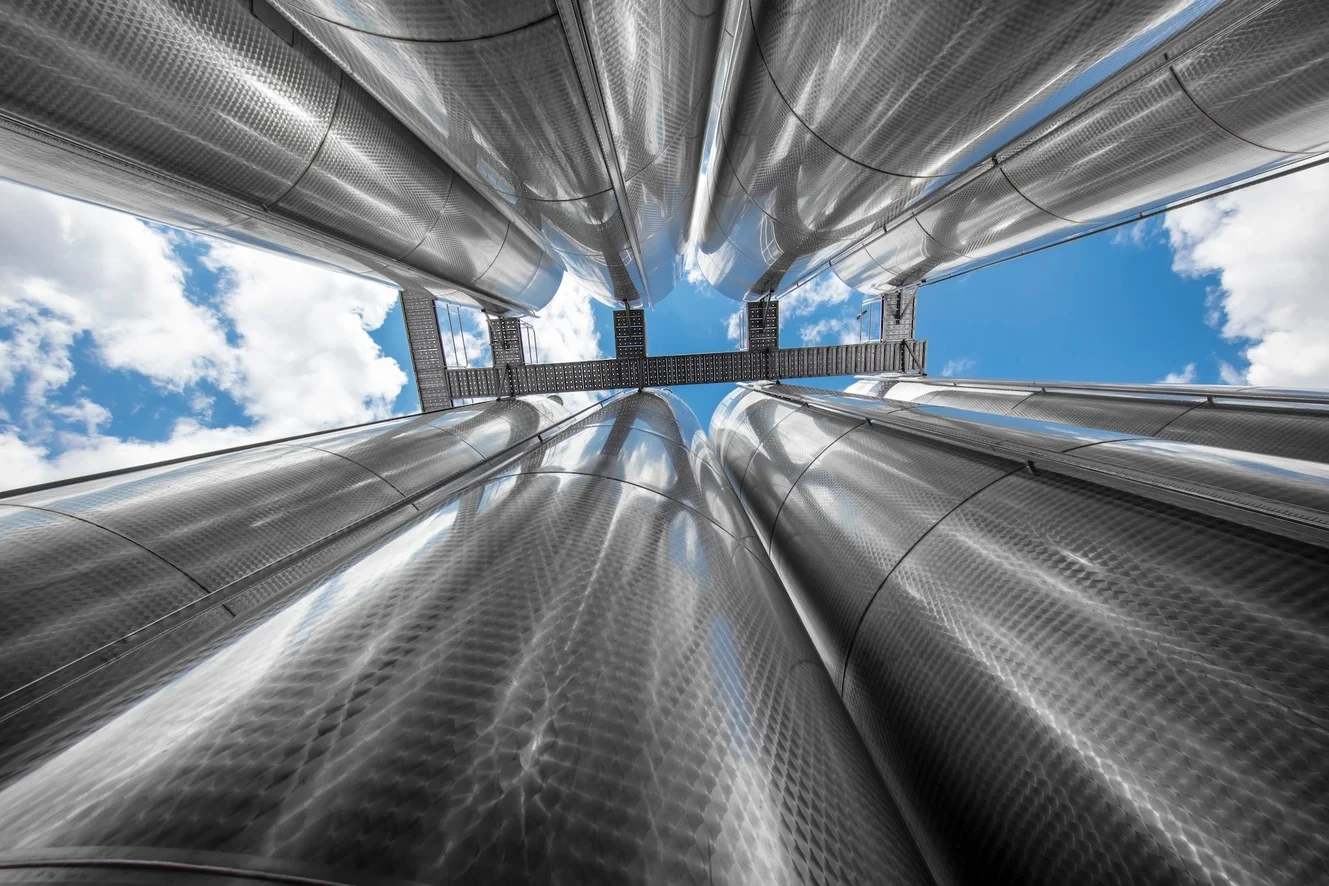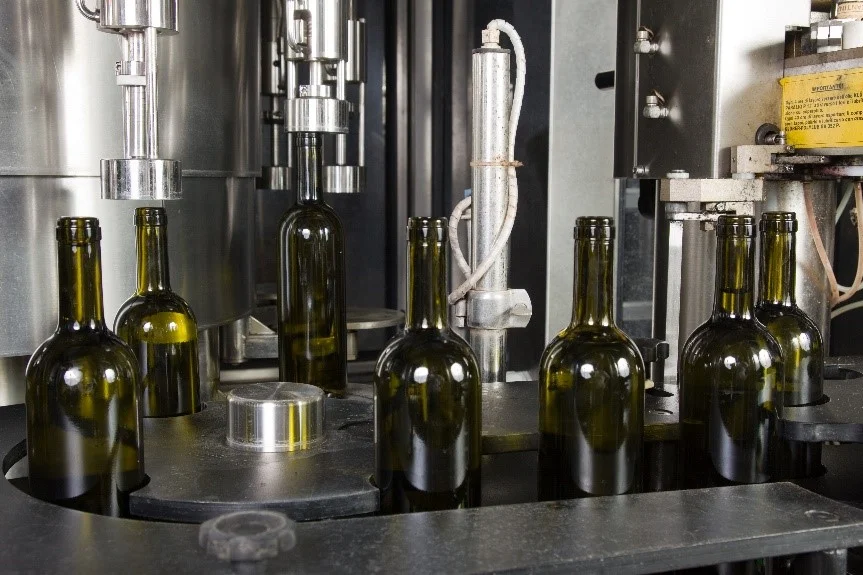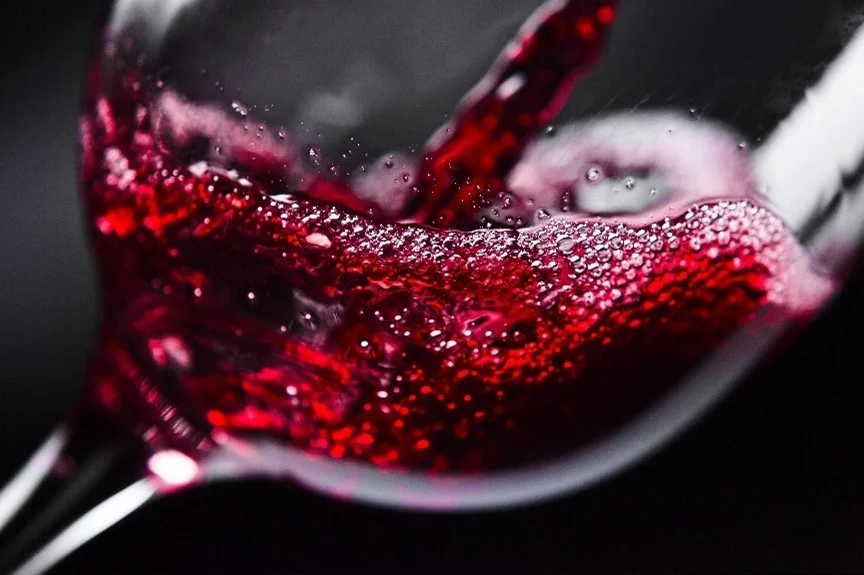On November 11, we had the opportunity to officially present our innovative Ultrawine Perseo Eco-sustainable system to a selection of media in the wine sector. The event took place at the Atocha Cool Rooms Hotel in Madrid where Germán León, CEO of the Agrovin Group, and Ricardo Jurado, Technical and R&D Director of the Agrovin Group, gave a presentation on this innovative system, highlighting the advantages of its application for wineries in particular and the future of oenology in general. The attending journalists learned first-hand about the virtues of Ultrawine Perseo, which they later published in their respective media.
ULTRAWINE PERSEO. SYSTEM PATENTED BY THE AGROVIN GROUP
Ultrawine Perseo is a novel oenological system, intended to extract the maximum aromatic and phenolic potential of the grape by means of high-power low-frequency ultrasound. This is a noble extraction technique, which doesn’t increase temperatures or pressure, which in turn makes it possible to optimize the winemaking process. In addition, its application manages to eliminate the effects on the maturity lag of the grapes caused by climate change, controlling the alcoholic strength and enhancing the quality of the grapes to obtain a high quality wine.
In organoleptic terms, its use in the production process translates into high quality musts with an intense color and aroma. Thus, the wine is improved, respecting the varietal character of the grape, while giving rise to more aromatic, structured and full-bodied wines.
It is a 100% sustainable ECO-technology suitable for responsible wineries, since its use enhances the extraction of phenolic and aromatic compounds, saving time, energy and consequently costs, at all times optimizing the resources available to the winery.
The tests show that Ultrawine Perseo, compared to the traditional maceration method, reduces maceration times by up to 50% and provides energy savings of up to 15%, due to the low consumption of its components and the avoidance of the use of temperature for extraction.
This innovative 4.0 system has been developed by the Technology department of the Agrovin Group, in collaboration with Researchers in Agrochemistry and Food Technology of the University of Murcia and the University of Castilla-La Mancha.
In addition, Ultrawine Perseo has the approval of the OIV (International Organization of Vine and Wine) to make use of ultrasound technology as a permitted oenological practice. In 2019, it was approved at the World Congress in Geneva by Resolution 2019/934.
Ultrawine Perseo holds the international patent for both the method and the system. And recently, it has been granted patents in the USA and New Zealand.
THE BASIS OF THE TECHNOLOGY
Ultrasonic cavitation
Ultrawine-Perseo is a technology that allows the cold extraction of grape compounds through ultrasound.
It applies high-power ultrasound to the crushed paste, producing in the surrounding environment the process called cavitation.
Cavitation is a physical process that consists of the production of microbubbles that tend to collide with each other and release their energy.
This aggressive collision of the bubbles, together with the associated implosion process, wears on the skin tissue, thus facilitating the release of the phenolic compounds and aromatic precursors, allowing wineries to reduce the time they devote to this process and thus optimise production capacity, being able to have more maceration deposits.
BENEFITS OF ULTRASOUND APPLIED TO WINE PRODUCTION
Numerous industrial trials have shown that the application of Ultrawine Perseo in the production process brings numerous benefits that improve the quality of wines:
- It extracts the maximum organoleptic potential of the grape while respecting its varietal character
- 35-40% more organoleptic attributes.
- Same polyphenolic potential, but less maceration time than a traditional maceration.
- Quality productions with immature grapes, called climate change grapes.
In short, higher quality wines.
Benefits designed, in addition, for responsible wineries thanks to:
- Reduction of energy costs by more than 15% compared to the traditional manufacturing process.
- Increase in the rotation of the tanks to be vinified due to the shorter extraction time, reducing maceration times by 50%.
